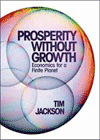Transition Culture: An Engaged Ethnography of the Transition Movement
Overall aims
The purpose of this research is to explore Transition (Town) movement strategies and experiences of mobilising community-based action for a low carbon future, particularly the evolving food, energy and transport activities being developed by Transition initiatives in southern England.
Background
Motivated by the ‘twin’ issues of peak oil and climate change, the Transition (Town) movement began in the south-west of England six years ago and is now spreading within Europe, the US and beyond. Local Transition initiatives are supported by the Transition Network (a small organisation based in Totnes, Devon). The Network advocates energy descent, relocalisation and the building of resilience to the threats of climate change and peak oil as the way forward, arguing for both an inner and outer transition through local collective action.
Research questions and methods
- What kind of low carbon future is the Transition movement advocating and why?
- How is the movement attempting to achieve it, and with what lessons so far?
- Can identity threat encourage people to change towards more sustainable travel?
The research is ethnographic in approach. The methods used involve: in-depth interviewing of 35 Transition initiative activists; analysis of relevant Transition Network materials and publications (particularly books and films); and participant observation in local, regional and national Transition events.
Results and Implications
The Transition movement is embroiled in value-imbued cultural politics, at the heart of which is not only a struggle over what a sustainable lifestyle means in practice, but the nature of the economic and social systems required to support it. Its instrumental focus is on how a transition can be engineered to the desired localised low carbon post-oil future that is depicted in the evolving discourse and repertoires of activities of the Transition movement.
Whilst the word ‘strategy’ belies the somewhat organic, opportunistic and individualistic character of Transition collective action at the local level, the central argument is that the Transition movement is not only engaged in prefiguring desired ‘sustainable lifestyles’ through promoting particular social practices, but is beginning to attempt to reconfigure elements of current systems of provision that shape and are shaped by existing lifestyle-livelihood arrangements.
Though there are over 150 Transition Initiatives across the UK, often with membership lists in their hundreds, the actual numbers of grassroots activists organising and implementing activities tend to be relatively small. Yet the array of activities that the Transition movement has fostered in the six years of its existence is impressive. Drawing on and contributing to wider and more loosely organised thematic movements focused on local food, local renewable energy and sustainable transport., these range from schemes to grow or buy local food (e.g. community gardens or food buying co-ops), to the implementation of local renewable energy companies, to promoting alternatives to driving (bicycle repair workshops, cycling training, local transport).
As a result of a number of formal and informal mechanisms, such as Transition thematic books and Network conferences that help to circulate project ideas, there are many similarities between the kinds of activities implemented by different Transition initiatives. Indeed it is possible to identify an evolving activity repertoire under each of the themes. However, each activity varies in the detail, depending mainly on the interests and time availability of those involved and perceived opportunities and constraints locally. These variations sometimes act as a source of innovation. It is not so much a process of diffusion and scaling up, but of circulation and reinvention.
The food-related activity repertoire is the most developed. Moreover, food activities are more common than energy activities, and energy activities are more common than transport activities. This reflects not only the interests of those getting involved, but the perceived ability of a voluntary community group to take practical action locally in relation to each of these themes, partly as a result of current governance arrangements as they relate to each area.
Overall what this research suggests is that, whilst climate, energy and environmental policy interest in community-based approaches has tended to focus on their supposed ability to deliver behaviour change through public engagement, Transition experience potentially points to a different role. This is one focused not on mass mobilisation for individual sustainable action (valid though this might be), but on the innovation and reinvention of place-based projects that create social and physical infrastructure which make living sustainably more feasible. This is not to denigrate the Transition goal of being inclusive, as enshrined in the Network’s principles and ‘ingredients’. But it recognises that cultural politics and the contestation this involves are inherent in any attempt to define and bring about a particular future, and that this offers a challenge to values and strategies of inclusion.
Outputs
Coke, A 2011. Practical manifestations of transition: exploring food activities of the transition movement. Paper presented at the RESOLVE conference: Living sustainably – values, policies and practices. London, 15 June 2011.
See also:
Coke, Alexia 2014. Where do we go from here? Transition strategies for a low carbon future. PASSAGE Working Paper 14/03. Guildford: University of Surrey.





